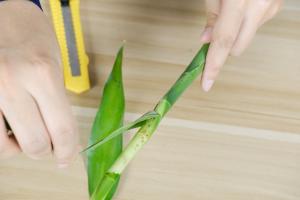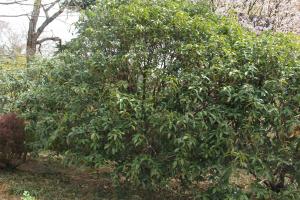Which Plant is the Egypt Tree of Life?
For centuries, historians and botanists have been searching for the identity of the 'Tree of Life' mentioned in ancient Egyptian mythology. The ancient Egyptians considered this sacred tree as the source of all life and believed that it possessed mystical powers. However, the ambiguity surrounding the identity of this tree still prevails, leading to many theories and speculations over the years.
Theories on the Egypt Tree of Life
The most popular theory about the Tree of Life is that it is the Sycamore Fig tree. It is believed that the Sycamore Fig tree was revered by the ancient Egyptians, and its fruit was consumed as food by both humans and gods. The tree's leaves were also used as medicine, and its bark was used for making paper.
Another theory suggests that the Acacia tree, specifically the Acacia Nilotica, is the Tree of Life mentioned in Egyptian mythology. The Acacia tree was also known for its medicinal properties and was associated with resurrection and rebirth in ancient Egyptian mythology.
Recently, a study conducted by the University of Al-Minya in Egypt has identified the Doum Palm (Hyphaene thebaica) as the possible Tree of Life. The Doum palm is native to the Nile valley and has been used for centuries in traditional medicine for various ailments. The fruit of the tree is also believed to have mystical properties and was used as an essential ingredient in religious ceremonies.
The Importance of the Tree of Life in Ancient Egypt
The Tree of Life had immense significance in ancient Egyptian culture and was an essential part of their daily lives. Its symbolism was associated with life, growth, and regeneration. The tree was perceived as a bridge between the earthly and divine realms and was believed to connect the living with the dead.
The Tree of Life also played a crucial role in the journey of the soul to the afterlife. In Egyptian mythology, the journey of the soul was considered a perilous one, and it was believed that the Tree of Life provided nourishment and protection to the soul during its journey.
The Mystical Powers of the Tree of Life
The Tree of Life was also believed to possess mystical powers, and its fruit and leaves were used for making potions and medicines. The fruit was believed to have properties that could cure various ailments, and its leaves were used as a stimulant and an antiseptic.
Moreover, the Tree of Life was also associated with the god Osiris, who was the god of resurrection and rebirth. It was believed that the Tree of Life symbolized his resurrection and immortality and provided a gateway to the afterlife.
Conclusion
The identity of the Egypt Tree of Life may never be fully known, as various theories and speculations surround this ancient myth. However, the importance of the Tree of Life in Egyptian mythology cannot be ignored, and its symbolism and mystical properties have left an indelible mark on the ancient world.
Despite the ambiguity surrounding the Tree of Life, its legacy has survived through the ages, and it remains a symbol of hope, life, and regeneration.

 how many times do yo...
how many times do yo... how many planted tre...
how many planted tre... how many pine trees ...
how many pine trees ... how many pecan trees...
how many pecan trees... how many plants comp...
how many plants comp... how many plants can ...
how many plants can ... how many plants and ...
how many plants and ... how many pepper plan...
how many pepper plan...































